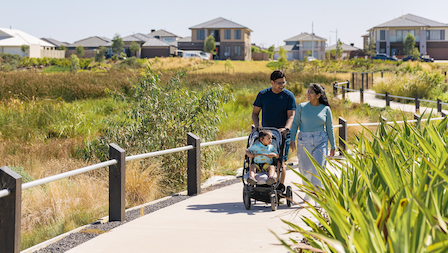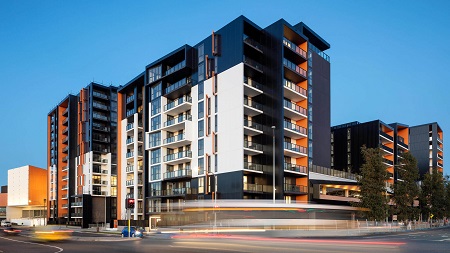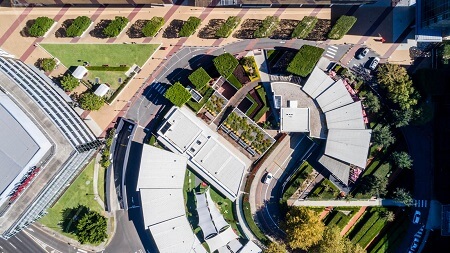How to buy a house with no deposit in Australia

Think it’s impossible to buy a house with no deposit? Think again. This might come as a surprise to some, but it is indeed possible to purchase a property (and qualify for a home loan) in Australia without having to save the traditional 10–20% deposit. While it’s not the most common route and does come with extra considerations, understanding your options could open the door to homeownership much sooner than you expected.
Think it’s impossible to buy a house with no deposit? Think again. This might come as a surprise to some, but it is indeed possible to purchase a property (and qualify for a home loan) in Australia without having to save the traditional 10–20% deposit. While it’s not the most common route and does come with extra considerations, understanding your options could open the door to homeownership much sooner than you expected.
Note: The content of this article is subject to the Disclaimer provided below.
What does “no deposit” actually mean?
When you first hear it, the term “no deposit” or “zero deposit” might sound like you could simply walk into a bank, sign some papers, and walk away with a set of house keys - no savings required. In reality, it’s not quite that simple.
In the property world, a deposit is the initial lump sum you contribute towards the purchase price of your home. For most buyers in Australia, lenders expect at least 5–20%* of the property’s value upfront. So, when we talk about buying with “no deposit,” it means you’re covering this initial amount through other means, and not necessarily that you’re paying nothing at all.
*Great news for first home buyers in Australia – as of 1st October 2025, eligible buyers may be able to purchase a home with just a 5% deposit under the Australian Government 5% deposit Scheme, without the added cost of Lenders’ Mortgage Insurance (LMI).
Understanding lender requirements and minimum deposits
Borrowers looking to take advantage of a no-deposit loan will need to meet certain eligibility criteria. Lenders will assess your income, employment stability, existing debts, and credit history to ensure responsible lending. Meeting these requirements helps demonstrate your ability to repay the loan and strengthens your chances of approval.
A traditional home loan often requires at least a 5% deposit, but with certain schemes or assistance from a guarantor, you might be able to borrow up to 100% of the purchase price.
The role of Loan-to-Value Ratio (LVR)
Loan-to-Value Ratio (LVR) is a key term to know if you’re wondering how to buy a house with no deposit. LVR refers to the percentage of the property’s value you’re borrowing from the lender. For example, if you buy a $500,000 home and borrow $475,000, your LVR is 95%.
Here’s the next key thing to note: The higher your LVR, the riskier it is for the bank; which is why most lenders charge Lenders Mortgage Insurance (LMI) for loans above 80% LVR. In no-deposit situations however, your LVR is essentially 100%, which means stricter eligibility checks and potentially higher costs. After all, it’s the bank who will be taking on more risk as opposed to the borrower.

Is it possible to buy a house with no deposit?
Yes, under the right circumstances, it is possible. In Australia, options like guarantor loans, government-backed schemes, and other creative arrangements can help you enter the property market without your own upfront deposit. That said, can you buy a house without a deposit and still feel financially secure? The answer depends on your personal situation, your risk tolerance, and the specific loan terms.
Considerations involved in low or no-deposit borrowing
Borrowing with no deposit means you’re taking on the maximum possible loan amount from day one. And that subsequently increases your:
- Risk of negative equity. If property prices drop, you could owe more than the house is worth.
- Repayment pressure. Higher loan amounts often mean higher monthly repayments.
- Vulnerability to interest rate rises. Small increases in rates can have a big impact on your budget.
Why most banks require genuine savings
Savings are crucial when it comes to how to buy a house with no deposit. This is because banks typically prefer borrowers who can show “genuine savings” aka money you’ve built up over time through your own discipline. It reflects your financial responsibility while reducing the lender’s risk. Without this, you’ll need to offset the risk in other ways, like offering a guarantor or paying higher interest.

Benefits and drawbacks of buying a house with no deposit
Like any financial decision, buying a home with no deposit comes with a few benefits and drawbacks. Here are some worth noting:
Benefits
- Faster market entry. You can become a homeowner sooner, which could be an advantage if property prices are rising quickly.
- Avoiding more rent. Instead of spending years saving while paying rent, your money goes towards building equity in your own home.
- Taking advantage of schemes. Certain government incentives or grants may only be available for a limited time, and a no-deposit option can help you seize them.
Drawbacks
- Higher LMI costs. With a high LVR, LMI can add thousands to your loan.
- Greater financial risk. No deposit means no equity buffer if property values fall.
- Stricter conditions. Lenders may charge higher interest rates or impose tougher repayment terms.

Alternatives to buying a home with no deposit
If you’re wondering how to buy a house with no deposit, there are a few realistic pathways in Australia. Each has its own pros, cons, and eligibility criteria.
Guarantor home loans
A guarantor loan allows a family member (such as a parent or sibling) to use the equity in their own property as security for your loan. This can help cover the deposit requirement and potentially avoid paying Lenders’ Mortgage Insurance (LMI). However, it’s important that the guarantor is prepared to take on financial responsibility if needed. If repayments aren’t made, they may be liable for the amount they’ve guaranteed.
Government-backed low deposit schemes
The Australian Government offers initiatives like the First Home Guarantee , which allow eligible buyers to purchase a home with as little as a 5% deposit. For single parents or legal guardians, the Family Home Guarantee scheme provides an even lower deposit option of just 2%. While these aren’t strictly “no deposit” schemes, they significantly reduce the upfront savings required to enter the property market.
Gifted funds or financial support from family
Some lenders also accept a monetary gift from the borrower’s family as a deposit, provided it’s genuinely given (not a loan) and documented with a statutory declaration. This can be a quick way to get into the market, though it depends on family willingness and financial capacity.
Co-purchasing a property with a partner
Got a significant other, sibling, or close friend whom you’d like to live or invest with? Then you could consider buying with them. After all, this means being able to pool resources together and split costs, which in turn, can help you reach the deposit faster or qualify for a bigger loan. Just remember: co-ownership comes with legal and financial commitments, so it’s wise to get a co-ownership agreement in place.
Rent-to-buy and vendor finance arrangements
In a rent-to-buy agreement, part of your rent goes towards the eventual purchase price. Vendor finance, meanwhile, involves the seller effectively lending you the money for the property. Both options can be complex and are less common, but they may work in certain situations.
Using superannuation savings through the First Home Super Saver Scheme
The First Home Super Saver Scheme (FHSSS) lets you withdraw voluntary contributions from your super to use towards a home deposit. While not a true “no deposit” option, it can significantly boost your savings and help you buy your dream home much sooner. One thing to note is that the only type of home you can buy with this scheme is a residential premise (and not an investment property). For other frequently asked questions you may have, you can refer to the FHSSS fact sheet here.

Financial considerations and risks
As you discover how to buy a home with no deposit, you’ll realise there are certain financial factors to consider, beyond just getting approved.
Paying Lenders Mortgage Insurance (LMI)
If your loan-to-value ratio (LVR) is over 80%, you’ll likely need to pay LMI, a one-off premium that protects the lender if you default. While this can add a notable amount to your loan, it’s usually rolled into the total loan balance, meaning you’ll pay it off gradually with interest as part of your regular repayments.
Managing repayments and interest with higher LVR loans
High LVR loans can offer a pathway to homeownership with a smaller upfront deposit, but they may come with higher interest rates. Since you're borrowing more, even modest rate changes can influence your monthly repayments. That’s why it’s a good idea to run the numbers on different scenarios- not just today’s rates - so you’re well prepared for the future. If you need expert advice, consider speaking to a financial advisor before you make any decisions.
Final Thoughts
Buying a home with no deposit can be a great way to enter the market sooner and start building equity right away. While it’s not without its considerations, such as taking on a larger loan, potential LMI costs, and higher repayments, it can still be a viable path for some buyers. Options like guarantor loans or government-backed low-deposit schemes may help reduce some of the pressure and offer more flexibility. If you're exploring how to buy a house with no deposit, it's worth carefully assessing your financial situation and planning ahead to ensure your repayments remain manageable over time.
Ready to buy your dream home with no deposit? Find the perfect one among Frasers Property's expertly-planned residential communities.
Disclaimer: The content in this article and any external links is provided for general information only and does not constitute an offer, part of a contract, or financial or investment advice. You should seek independent professional advice before making any financial decisions. All government incentives, grants, and schemes are subject to eligibility criteria, availability, and may change or be withdrawn at any time. Please refer to relevant government sources for the most current information. All property purchases are subject to terms, conditions, and eligibility requirements. Purchasers must make and rely on their own enquiries.
See more articles on
















